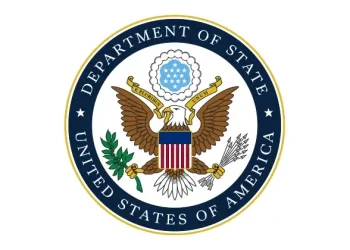The Department of Homeland Security secured a major legal victory when the 9th Circuit Court of Appeals granted permission to proceed with ending Temporary Protected Status (TPS) for immigrants from Honduras, Nicaragua, and Nepal.
The decision impacts more than 60,000 residents who have lived and worked legally in the U.S. for decades.
Introduction
On August 20, the 9th Circuit Court of Appeals ruled unanimously in favor of DHS, allowing the agency to revoke Temporary Protected Status for nationals of Honduras, Nicaragua, and Nepal.
The ruling affects over 60,000 immigrants and their families, reshaping U.S. immigration policy and sparking debate over humanitarian protections.
Federal Court Decision Explained
The case, National TPS Alliance v. Kristi Noem, centered on DHS’s move to end protections that had been in place for decades. A three-judge panel agreed with DHS’s position that TPS was never meant to serve as a permanent legal pathway.
Assistant Secretary Tricia McLaughlin praised the ruling, noting it restores integrity to the immigration system. DHS argued that TPS had been stretched beyond its original intent, effectively functioning as long-term residency without proper vetting.
Who Is Directly Affected?
Impact on TPS Holders and Families
The ruling directly affects more than 60,000 TPS holders, many of whom have lived in the U.S. for decades.
Their households include more than 100,000 U.S. citizen children who now face potential family separation if deportations proceed.
-
Honduras: 51,000 affected TPS holders
-
Nicaragua: 2,900 affected TPS holders
-
Nepal: 7,200 affected TPS holders
Community-Level Disruptions
Many TPS recipients are deeply integrated into local communities, particularly in states such as California, Texas, Florida, and New York.
Their sudden loss of status could create immediate disruptions in schools, workplaces, and neighborhoods where they have become long-term residents.
Economic and Workforce Implications
TPS holders are employed across essential industries, often filling roles with existing labor shortages. Removing tens of thousands of legal workers could strain multiple sectors.
| Country | TPS Holders Affected | U.S. Citizens in Household | TPS in Place Since | Work Authorization Through |
|---|---|---|---|---|
| Honduras | 51,000 | 68,000 | 1999 | Nov. 18, 2025 |
| Nicaragua | 2,900 | 13,000 | 1999 | Nov. 18, 2025 |
| Nepal | 7,200 | 23,000 | 2015 | Nov. 18, 2025 |
Industries most reliant on TPS holders include:
-
Construction and agriculture, where labor shortages are already widespread.
-
Healthcare and hospitality, where demand for workers continues to rise.
Historical Context and TPS Background
Origins of the Program
TPS was created to provide temporary relief to individuals unable to safely return to their home countries due to disasters or conflict. Honduras and Nicaragua received TPS after Hurricane Mitch in 1999, while Nepal was designated following the 2015 earthquake.
Extended Renewals
Although meant to be temporary, TPS designations for many countries were renewed for decades. Critics argue this turned a short-term humanitarian measure into an ongoing residency program.
Political and Legal Dynamics
Supporters of ending TPS say the decision strengthens the immigration system by restoring its intended limits. They argue that TPS was never designed as a substitute for asylum or permanent residency.
Opponents contend the move forces families back into unsafe conditions and undermines humanitarian obligations. Immigrant rights groups emphasize that TPS holders have built lives in the U.S., paying taxes, raising families, and contributing to the economy.
The current stay allows work authorization to remain valid until November 18, 2025, but ongoing appeals could alter the timeline.
Human Stories Behind the Policy
Beyond the policy debate are the lives of tens of thousands of people who have lived legally in the U.S. for years. Many TPS holders own homes, run businesses, and raise children who are American citizens.
For families, the ruling brings uncertainty. Parents worry about being separated from children, while communities fear losing neighbors, workers, and friends. These personal narratives highlight the tension between enforcement and compassion at the heart of U.S. immigration debates.
Something to Ponder
The DHS victory in the 9th Circuit marks a pivotal moment in U.S. immigration law. While it affirms the temporary nature of TPS, it also introduces significant humanitarian and economic challenges for thousands of families and communities.
The decision underscores a broader national debate: how to balance security and legal enforcement with compassion and stability for long-term residents.
Sources: US Department of Homeland Security.
Prepared by Ivan Alexander Golden, Founder of THX News™, an independent news organization delivering timely insights from global official sources. Combines AI-analyzed research with human-edited accuracy and context.








